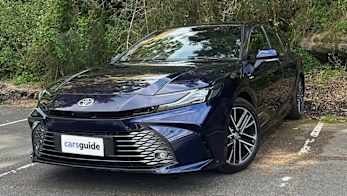Fingerprint scanners will be introduced to new cars over the next four years as traditional key fobs become more vulnerable to hackers.
That's the word from American tech and security experts, who say key fobs remain vulnerable to hacking unless they're wrapped in aluminium foil or in special metal cases.
"This (fingerprint) technology will be used in cars in two to four years," Godfrey Cheng, corporate vice president for Silicon Valley firm Synaptics, told Detroit Free Press. "Driver identification will be revolutionary."
Cheng warns that cars with keyless entry and push-button start are more vulnerable to theft because thieves can record the unique signal emitted by a key fob, even if it is sitting in your pocket, and then use it to access and start a locked vehicle.
The technology to scan a key fob, he says, is both simple to use and easy to obtain. But a biometric system that uses a fingerprint reader is much harder to crack.
.jpg)
"You're no longer relying just on a fob. This will be a fob and a fingerprint," Cheng said. "We're making the car more secure. It'll be a lot like online bank security."
Cheng's Synaptic firm is an American tech heavyweight, having worked with Google and Amazon. And the company has recently launched a new touchscreen that can be used even when wearing gloves, with the tech now adopted by Ford, Porsche, Range Rover and Honda, amongst others.
Car companies are already investigating biometric technology. The Nissan Xmotion concept - revealed at the Detroit Motor Show in January - debuted the Japanese brand's fingerprint-recognition tech, which was used to open and start the car.
But Cheng sees the technology going further still, telling Detroit Free Press that a car could be programmed to unlock certain features, or operate only at a certain time, based on whose fingerprint is scanned.
"Tesla transformed the way people looked at the car," he said. "People saw a future of cars that will be connected devices.
"So let's say we create the ‘teenager mode'. You can restrict their access by time, and you can customize the amount of horsepower the teenager has, like if they borrow a (Dodge Challenger) Hellcat.
"It's irresponsible to lend your 707-horsepower car to a teenager. In the old days, you only had the choice of giving someone the key or not. Now you can geo-fence them and give them time-based access."





.jpg)

.jpg)

.jpg)

.jpg)
.jpg)

.jpg)
.jpg)


.jpg)


.jpg)

_0.jpg)





